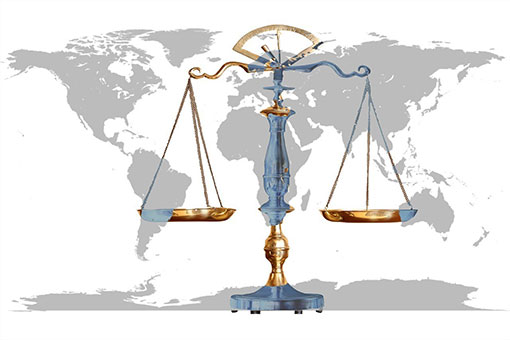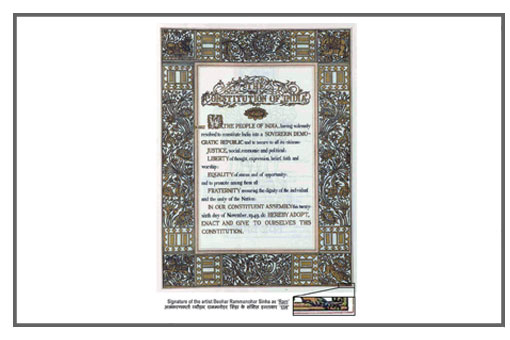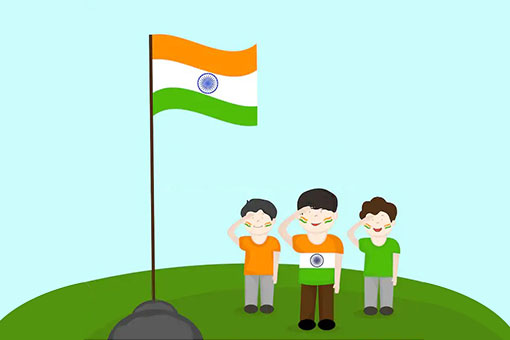We the People, We the Citizen

A citizen of a country is an individual recognized under the custom or law as being a legal member of a sovereign nation or allegiance to a government in exchange for its protection, whether at home or abroad. A citizen is one of the dominant pillars of the country. They are entitled to enjoy all the legal rights and privileges granted by a state to the people encompassing its constituency and are obligated to obey its laws and to attain his or her duties as called upon. We are all a citizen of our country and retain several rights and responsibilities towards our community, state, and country.
Each citizen has a responsibility to make his or her community a decent place to inhabit. When you are a responsible citizen, it implies that you know your duty adequately and will volunteer for numerous things that are required by the community or the society in general.

Source: www.seattlestar.net
Responsible citizens
A responsible citizen abides by all the law and order of the country. They are entitled to exercise all the fundamental rights and duties, such as casting a vote, paying government taxes and protecting the country from corruption. Being a good and responsible citizen of the country, one must engage in activities or assist in tackling issues such as keeping the environment clean, raising money for charities, conserving electricity, water, and natural resources, or protecting public properties, etc.
Every state or country provides its citizens with some fundamental civil rights such as personal rights, religious rights, social rights, moral rights, economic rights, and political rights, etc. A right is a liberty that is protected by the state, such as the right to free speech and religion.
Rights are given to the citizens for their individual moral, material or personality development and growth in social life. Responsibility is a moral duty that one should perform, such as recycling, preserving culture and heritage, etc. Voting is both a right and a responsibility.
India and responsibility
India is a democratic country where its denizens live freely. Democracy in the country can function only when its citizens have both rights and responsibilities. Rights and responsibilities are two sides of a coin that goes hand in hand with us in whatever home, society, state, or country we live in.
A democratic system of the country is entirely founded on the freedom of its citizens to celebrate their rights. Fundamental rights bestowed to the Indian citizens are an essential part of the Constitution. The rights are not violable in the common circumstances but they are not absolute either and are subject to reasonable restrictions as necessary for the protection of public interest. Such rights prevent the government from being dictatorial and oppressive. In any case of rights violations of an individual, courts can protect and safeguard them.

Source: www.wikipedia.org
Indian Constitution provides six fundamental rights to their citizens, which are:
-Right to Equality (Article 14 – Article 18)
-Right to Religion (Articles 25 – Article 28)
-Right against Exploitation (Articles 23 – Article 24)
-Right to Culture and Education (Articles 29 – Article 30)
-Right to Freedom (Articles 19 – Article 22)
-Right to Constitutional Remedies (Article 32)
To completely enjoy the rights, citizens must perform their responsibilities towards the country in a decent manner because the rights and responsibilities of an individual are inter-related to each other. If we have rights, we must have their corresponding responsibilities too. Rights and duties of each citizen preserved in the Indian Constitution are very valuable and inter-related considering the prosperity of the country.
Responsible Indian citizen
In The Constitution of India book published and accepted by the first parliament of India on 26th of January 1950, under Article 51A, it’s been duly pointed out that it shall be the duty of every citizen of India –
-To abide by the Constitution and respect its ideals and institutions, the National Flag and the National Anthem;
-To cherish and follow the noble ideals which inspired our national struggle for freedom;
-To uphold and protect the sovereignty, unity, and integrity of India;
-To defend the country and render national service when called upon to do so;
-To promote harmony and the spirit of common brotherhood amongst all the people of India transcending religious, linguistic and regional or sectional diversities; to renounce practices derogatory to the dignity of women;
-To value and preserve the rich heritage of our composite culture;
-To protect and improve the natural environment including forests, lakes, rivers, wildlife and to have compassion for living creatures;
-To develop the scientific temper, humanism and the spirit of inquiry and reform;
-To safeguard public property and to abjure violence;
-To strive towards excellence in all spheres of individual and collective activity, so that the nation constantly rises to higher levels of endeavour and achievement;
-Who is a parent or guardian, to provide opportunities for education to his child, or as the case may be, ward between the age of six to fourteen years.
The constitution book delineates every responsibility and duty that an Indian citizen is expected to abide by. As a citizen of the country, we are morally and legally required to perform our duties furnished by the government. They can be civic duties or moral duties which cannot be enforced legally upon the citizens even by the courts.

Source: www.shutterstock.com
Being a citizen of India, some of the moral responsibilities and duties mentioned in the constitution are: We must respect the National Flag and National Anthem, obey the laws of our country, protect the power, unity and integrity of the country, safeguard public property, pay our taxes with honesty promptly, protect and preserve cultural heritage sites, protect, preserve and improve the natural environment, we must guard the country and maintain the spirit of a common brotherhood, we must respect, value and follow all the noble ideals used in the national struggle for freedom, etc. Inclusion of such commitments to the Constitution is important for the progress, peace, and prosperity of the country.
What it means
As a good and responsible citizen of the country, first one must be aware of the fundamental rights and duties. Comprehending all the rules and regulations proposed by the government may boost every citizen in achieving their responsibilities towards the country. Responsible citizens build their community a good habitat to live by following the principles and helping others.
We as a citizen, are all accountable for the good or bad conditions of the nation. We need to shift our attention into action to procure positive impacts on our community and country. An individual action performed by a person can change a life, but collaborative actions have a positive impact on the entire nation. Therefore, the duties of citizens count as a contribution to a flourishing society and nation as a whole.
A responsible citizen has fractions of responsibilities and commitments for the development as well as prosperity and peace in the country. A country can flourish when its citizens are responsible enough to build a strong and powerful nation. We are all responsible for the protection and development of our country.



Total Comments - 0